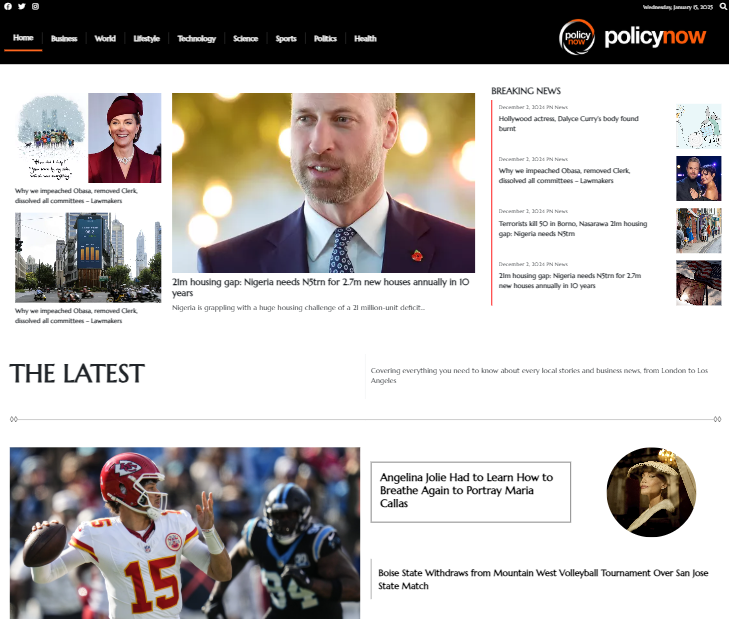How Tech Companies Are Driving M&A Growth
Tech Companies Driving M&A Growth
Published date : January 21, 2025 PN News

Mergers and acquisitions (M&A) have become key strategies for growth in the technology sector, with tech companies increasingly driving M&A activity in 2025. The fast-paced nature of the tech industry, combined with constant innovation and the need for expansion, has created a unique environment where M&A deals are a critical path to success. This article explores how tech companies are fueling M&A growth, reshaping industries, and creating new opportunities for market dominance and technological advancement. The Surge in Tech-Driven M&A Deals in 2025 In 2025, tech companies are among the most active players in M&A, with mergers and acquisitions helping these companies stay ahead of competitors, accelerate innovation, and enter new markets. The rapid pace of technological advancements—especially in artificial intelligence (AI), machine learning, cloud computing, and cybersecurity—has driven companies to seek new partnerships and acquisitions to stay at the cutting edge of innovation. Several factors are contributing to this surge in tech-driven M&A deals: The Need for Innovation: Tech companies are constantly under pressure to innovate and evolve. M&A allows them to acquire startups or established players with disruptive technologies, offering an immediate boost to their innovation capacity. Strategic Expansion: As global markets become more interconnected, tech firms are looking to expand their geographical reach. Merging with or acquiring companies in new regions enables tech firms to gain access to new customers, talent, and technologies. Consolidation of Resources: Merging with or acquiring other tech firms helps streamline operations, reduce competition, and combine resources for greater operational efficiency. AI and Cloud Computing: Hotbeds for M&A Activity Two areas of technology that are seeing significant M&A activity are artificial intelligence (AI) and cloud computing. These technologies have become central to many businesses' digital transformation strategies, prompting a surge in mergers and acquisitions within these fields. Artificial Intelligence AI is transforming industries from healthcare to finance, and companies are eager to gain access to cutting-edge AI technologies and talent. Tech firms are acquiring AI startups to incorporate their algorithms, data analytics capabilities, and machine learning models into their existing platforms. This M&A activity is particularly notable in the areas of natural language processing, autonomous systems, and predictive analytics. For example, large tech giants are merging with AI startups to enhance their product offerings in sectors like automation, cybersecurity, and customer service. These mergers help businesses quickly scale their AI capabilities without having to build them in-house from the ground up. Cloud Computing Cloud infrastructure and services have become vital to nearly every industry, driving a massive wave of M&A activity. Larger tech companies are acquiring cloud-based startups to diversify their service offerings, integrate cutting-edge technologies, and expand their market share. Cloud computing mergers not only allow companies to scale their infrastructure rapidly but also provide access to critical customer data that can drive further innovation. Companies like Amazon Web Services (AWS) and Microsoft Azure have been actively involved in M&A deals aimed at strengthening their cloud portfolios and maintaining a competitive edge in this growing market. The Role of Cybersecurity in M&A Growth As digital transformation accelerates across industries, cybersecurity has become a key focus for tech companies. With the rise in data breaches, cyberattacks, and regulatory pressures, securing digital assets has never been more critical. Cybersecurity startups are becoming highly sought-after targets for larger tech companies looking to bolster their security offerings. M&A deals in the cybersecurity space are helping tech companies stay ahead of evolving threats and provide integrated security solutions to their clients. The ongoing demand for secure platforms across sectors like finance, healthcare, and e-commerce means that cybersecurity will continue to drive significant M&A activity in 2025. Strategic Mergers for Digital Transformation Many tech companies are also leveraging M&A as a means to accelerate their digital transformation. Merging with or acquiring firms that offer complementary technologies—such as data analytics, automation tools, or IoT solutions—enables tech firms to expand their capabilities and better serve their clients. Tech giants are focusing on acquiring companies with strong digital platforms that can help enhance their own product offerings. For instance, a traditional software company might merge with a firm that specializes in cloud-based SaaS (Software as a Service) solutions to transition to a fully digital-first business model. Additionally, companies are acquiring startups that can offer innovative business models or new revenue streams, providing them with the agility needed to adapt to market demands. Financial and Market Pressures Driving M&A Growth In addition to technological innovation, financial pressures are a significant driver of M&A growth in the tech sector. As venture capital funding becomes more competitive and exit strategies for startups evolve, many entrepreneurs are seeking M&A deals as a way to secure financial rewards for their hard work. Similarly, large tech companies facing market saturation or stagnation are increasingly turning to M&A to rejuvenate their portfolios. Mergers offer a way to expand market share, enter new niches, and diversify revenue streams. For example, companies might acquire competitors or companies in adjacent markets to strengthen their position and improve shareholder value. The Future of Tech-Driven M&A Activity As we move through 2025, the growth of M&A in the tech sector is set to continue. The demand for AI, cloud services, and cybersecurity will drive deals, while the increasing need for digital transformation will fuel mergers in a variety of sub-sectors. In the coming years, we may see further consolidation in the tech industry, with larger companies acquiring smaller startups in a bid to remain competitive. Regulatory frameworks around antitrust laws and data privacy will also influence M&A activity, ensuring that companies balance innovation with compliance. For tech companies, staying ahead of the M&A curve will be essential to maintaining growth, expanding capabilities, and adapting to the fast-changing technology landscape.

Subscribe to our E-EDITIONS
Subscribe to our digital E-Editions here, and enjoy access to the exact replica of policy now Newspapers publications.

